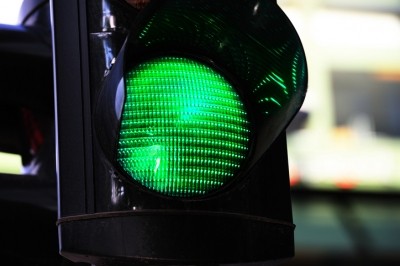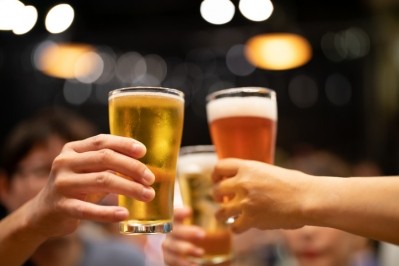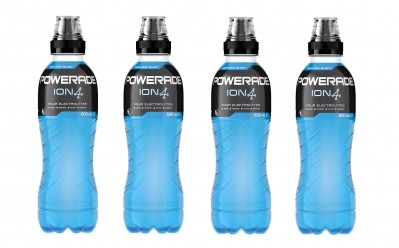Beverage giants join forces to accelerate renewable energy adoption

Many of these big beverage companies already use renewable energy in their operations, and are working towards increasing their usage. But what the REfresh Alliance will do is help their suppliers tackle the barriers to renewable energy adoption with the goal to transition supply chains to Net Zero.
Scope 3: The biggest challenge
Scope 3 emissions - those that come from suppliers outside a company's direct control - typically account for around 90% of a beverage company’s carbon footprint.
Without direct control over operations, that makes it the hardest areas for companies to address effectively.
And furthermore, suppliers face a number of barriers when it comes to decarbonization. That is often related to the lack of capabilities, or the financial might to introduce new projects. They don't always have access to the right information or education to make good decisions, or don't have access to economically viable projects.
Those are the areas the new REfresh initiative will focus on as it helps its suppliers improve their uptake of renewable energy.
Coca-Cola and Diageo: mapping out Scope 1, 2 and 3 emissions
The Coca-Cola Company sees around 7% of its emissions come from Scope 1 direct emissions, such as the use of fossil fuels and fleet vehicles. Around 5% come from Scope 2 indirect emissions, such as electricity and heat and steam.
But 88% of emissions come from upstream and downstream sources, according to 2022 data published by the company. That covers purchased goods and services, and downstream transportation and distribution.
TCCC already says using renewable energy is ‘critical’ for reducing the emissions in its own manufacturing processes, and has increased that from 12% in 2021 to 21% in 2022.
But it’s already taken steps to spread knowledge across its system, with a Renewable Energy Implementation Guidebook published in March 2022 and an initiative called Renewable Energy Project Pipeline the same year, which focuses on bottling partners and concentrate plants.
Speaking with the launch of the REfresh Alliance, Ralf Peters, Chief Procurement Officer of Coca-Cola Europacific Partners (CCEP), and Chairman, Coca-Cola Cross Enterprise Procurement Group (CEPG), said: “We have long recognized the need for industry collaboration to deliver the most impact and to accelerate the transition across our supply chains.
The REfresh initiative intends to launch initially in the mature renewable energy markets of Europe and North America, where it will be able to use existing networks to accelerate impact.
But it will look to expand to other markets and is inviting businesses from across the industry to join its efforts.
"Supporting our supply partners is a key part of our sustainability action – and that encouraging them to transition to renewables is one of the most impactful things we can do to help decarbonize their businesses, and to do the same in ours.”
Over in beverage alcohol, Diageo is targeting net zero across its direct operations by 2030 and across its Scope 3 emissions by 2050.
The split between scope 1 and 2 and Scope 3 is even bigger than at TCCC: 6% of emissions come from Scope 1, while 0.1% come from Scope 2. That means 94% come from Scope 3.
The company is already is aiming for 100% renewable energy across its direct operations: the next step is to look at suppliers.
Jane Liang, Chief Procurement Officer of Diageo, said: “The climate crisis is the most pressing issue of our time and the transition to Net Zero is becoming increasingly important.
"However, there is only so much we can do as individual businesses. The REfresh Alliance will drive collective action within the industry to accelerate the adoption of renewable energy. We are calling on all companies and suppliers within the industry to join us and support the industry in its transition to Net Zero.”
Heineken has been shifting its production sites to renewable sources of energy: not only supporting its journey to net zero but also protecting the company from fluctuating energy prices. This includes the Mutkalampi wind farm in Finland, which came online last year and will deliver enough renewable electricity to cover 27 of its European production sites over the next 10 years. In Spain, it launched the largest industrial solar thermal plant in Europe in partnership with Engie.
When it comes to Scope 3 emissions, it has already been engaging with strategic suppliers and using its scale to support their transition to renewable energy.
Hervé Le Faou, Chief Procurement Officer of Heineken, said: “Scope 3 emissions are one of the biggest challenges that the industry faces in delivering on our Net Zero ambitions. We must work together to identify areas of our supply chains where we can pool our resources to accelerate this transition for our suppliers.
"We look forward to working with other beverage companies to achieve this and accelerate the decarbonization of our industry.”











